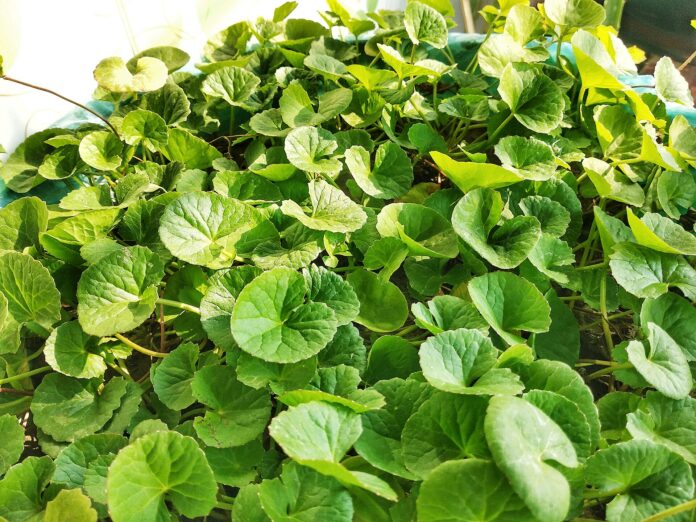Pennywort (Centella asiatica), a medicinal herb used in traditional medicine across Asia for centuries, has recently gained attention for its potential role as a telomerase inhibitor.
What is Pennywort?
Pennywort is a perennial herb found in Asia, Africa, and parts of Europe. Ayurveda and Traditional Chinese Medicine (TCM) used pennywort to treat skin conditions, anxiety, and cognitive decline. The plant is rich in bioactive compounds, such as triterpenoids, saponins, and flavonoids, which are thought to contribute to its therapeutic effects.
Now, recent research suggests that pennyworth may have the ability to slow or inhibit telomerase, which could have significant implications for cancer therapy.
The Role of Telomerase in Aging
How might pennywort do to this? Pennywort is known to contain various compounds that are believed to be telomerase inhibitors.
Telomeres are repetitive DNA sequences found at the ends of chromosomes. In most normal cells, telomeres shorten with each cell division, eventually leading to cell death. This process acts as a natural limit on how many times a cell can divide. Telomerase compensates for this telomerase shortening. Telomerase adds more genetic material to the ends of those chromosomes.
Pennywort as a Telomerase Activator
Previously, various compounds have been found to increase the activity of telomerase. However, this effect is usually a double or less-than-doubling effect.
However, Asiatic pennywort has been found to increase telomerase activation by a factor of 8.8.
Additional Health Benefits
Aside from its telomerase-activating properties, pennywort offers several other health benefits that could make it an appealing option for cancer patients. Its anti-inflammatory and antioxidant properties can help reduce oxidative stress and inflammation, both of which are associated with cancer progression. Additionally, pennywort has been shown to promote wound healing, which may aid in recovery for patients undergoing surgery or other invasive treatments.
Future Research
Despite the promising potential of pennywort as a telomerase activator, more research is neededs Laboratory studies have shown that pennywort compounds can activate telomerase, it is unclear how these findings translate to effects in the human body. Moreover, the bioavailability of these compounds—the degree to which they are absorbed and used by the body—is still unknown. Several companies are focusing on extracting and refining specific telomerase-inhibiting compounds from pennywort to isolate the beneficial effects.
Pennywort is an interesting natural candidate in the search for telomerase inhibitors that can help treat cancer. With its long history of medicinal use and its emerging role in telomerase inhibition, this little herb could play a significant role in the development of new cancer therapies.



